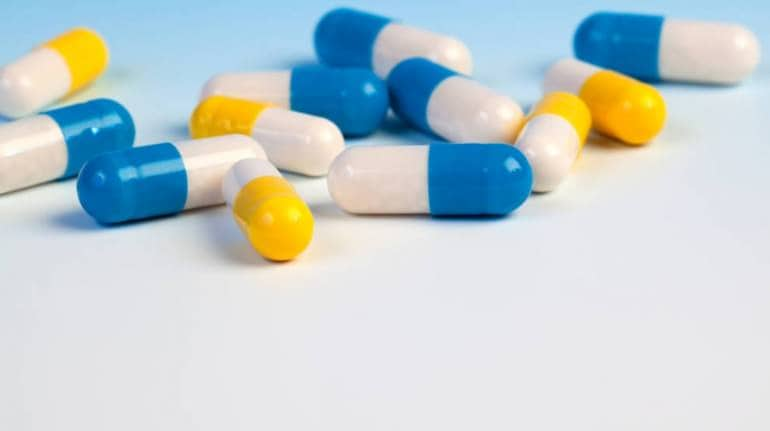
Aarti Drugs, which is primarily engaged in the manufacture of Active Pharmaceutical Ingredients (APIs), the key ingredient in medicines, has seen its overall sales jump to Rs 544.67 crore -- a year-on-year (Y-o-Y) increase of 34.34 percent -- for the quarter ended June 2020.
Overall sales account for both domestic sales as well as exports.
Profit after tax rose 280.63 percent to Rs 85.45 crore, on a Y-o-Y basis, during the same period. Earnings Before Interest, Tax, Depreciation and Amortization (EBITDA) margin stood at Rs 135.23 crore, up by 146.89 percent Y-o-Y.
The API segment, which contributes approximately 85 percent to the total revenues, grew 28 percent Y-o-Y to Rs 460 crore for the quarter ended June 2020.
Exports rose by 29.13 percent to Rs 1,806 crore in FY20. Around one-third of Aarti Drug's revenues came from exports in FY20.
The company attributed the API segment performance to both volume growth and good realisation in selling prices.
In fact, Aarti Drugs is among the few shares that gained substantially during COVID-19 times. Company shares gained 2.51 percent and closed at Rs 1,707.35 on the BSE on July 30, while the benchmark Sensex declined 0.88 percent to end at 37,736.07 points.
So, what led to Aarti Drugs' stellar performance?
China factor
As drug companies, domestic and global, started scouting for non-Chinese sources for raw materials, following COVID-19, Aarti Drugs gained.
China has a stranglehold on pharmaceutical raw materials like APIs and intermediates, and Indian companies rely heavily on the neighbouring country. Analysts say it could be anywhere between 60-90 percent.
Diversification of suppliers was necessitated by the supply chain disruption on account of lockdown in China. Even when lockdown was eased in China by the end of March, Chinese firms hiked the prices of APIs by an average of 20-30 percent. In some cases like heparin, the anticoagulant drug over which China has a 100 percent control, prices went up by more than 100 percent.
The recent border tension along the Line of Actual Control (LAC) in Ladakh between India and China was another factor, with imports getting stuck at ports.
“Even though the prices offered by other suppliers are not lesser when compared to their Chinese counterparts, drug companies are willing to offer even higher prices as they don't want put all their eggs in one basket," said a senior executive in a pharma company who handles sourcing. He didn't want to be named.
Aarti Drugs saw good demand for APIs for antibiotic drugs such as ciprofloxacin, ofloxacin and norfloxacin. Traditionally, China is the major supplier here.
It isn't just Aarti Drugs that is making the most out of the situation. Dr Reddy's, Biocon and Laurus Labs, all of which have declared their Q1 results, said they also saw higher volume intake. Dr Reddy's saw its API division growing 88 percent YoY in Q1FY21 to Rs 860 crore. The company said the growth was on account of higher volumes of certain products, increase in new product sales and favourable forex position.
Biocon witnessed a higher-than-normal demand for certain key APIs such as statins and immunosuppressants in key geographies.
"When it comes to de-risking, the primary decision is made by the customer. I have a strong feeling that it's good for the API business," said Erez Israeli, Chief Executive Officer (CEO), Dr. Reddy's.
“(We) believe Indian API companies will benefit from the improving demand outlook in the US. They have successfully secured supply chains and have witnessed increased enquiries from global customers, as the latter are trying to reduce their API dependence on China," said India Ratings and Research (Ind-Ra).
Enhancing domestic production
The Indian government has announced Rs 6,940 crore and Rs 3,000 crore, respectively, for performance-linked incentives (PLIs) and bulk drug parks.
Under the PLI scheme, financial incentives will be given to eligible manufacturers of 53 identified critical APIs on their incremental sales over the base year (2019-20) for six years.
Aarti Drugs said it has shortlisted a basket of products for the PLI scheme. The drug maker is also evaluating contract manufacturing of specialty products, earlier manufactured in China.
"Chinese suppliers, aware that drug companies are looking for alternative suppliers, have now resorted to price cuts of APIs and intermediates to protect their industry, and nip competition in the bud,” said a senior executive of a pharma company.
While the Indian government has undertaken initiatives via backward integration, Ind-Ra believes material benefits, if any, will be visible only in the long term. Ind-Ra believes that Chinese raw material suppliers have inherent advantages in scale, cost productivity and government support, which are difficult to build in the short to medium term.
In terms of APIs, India has a definite advantage. India has a high share of drug master files (DMFs) filed in the US, about 15 percent, and it has the highest number of USFDA-approved API facilities.
"Chinese API and intermediate suppliers are well aware that their industry will suffer if India doesn't buy raw materials from them," the executive said.
Discover the latest business news, Sensex, and Nifty updates. Obtain Personal Finance insights, tax queries, and expert opinions on Moneycontrol or download the Moneycontrol App to stay updated!